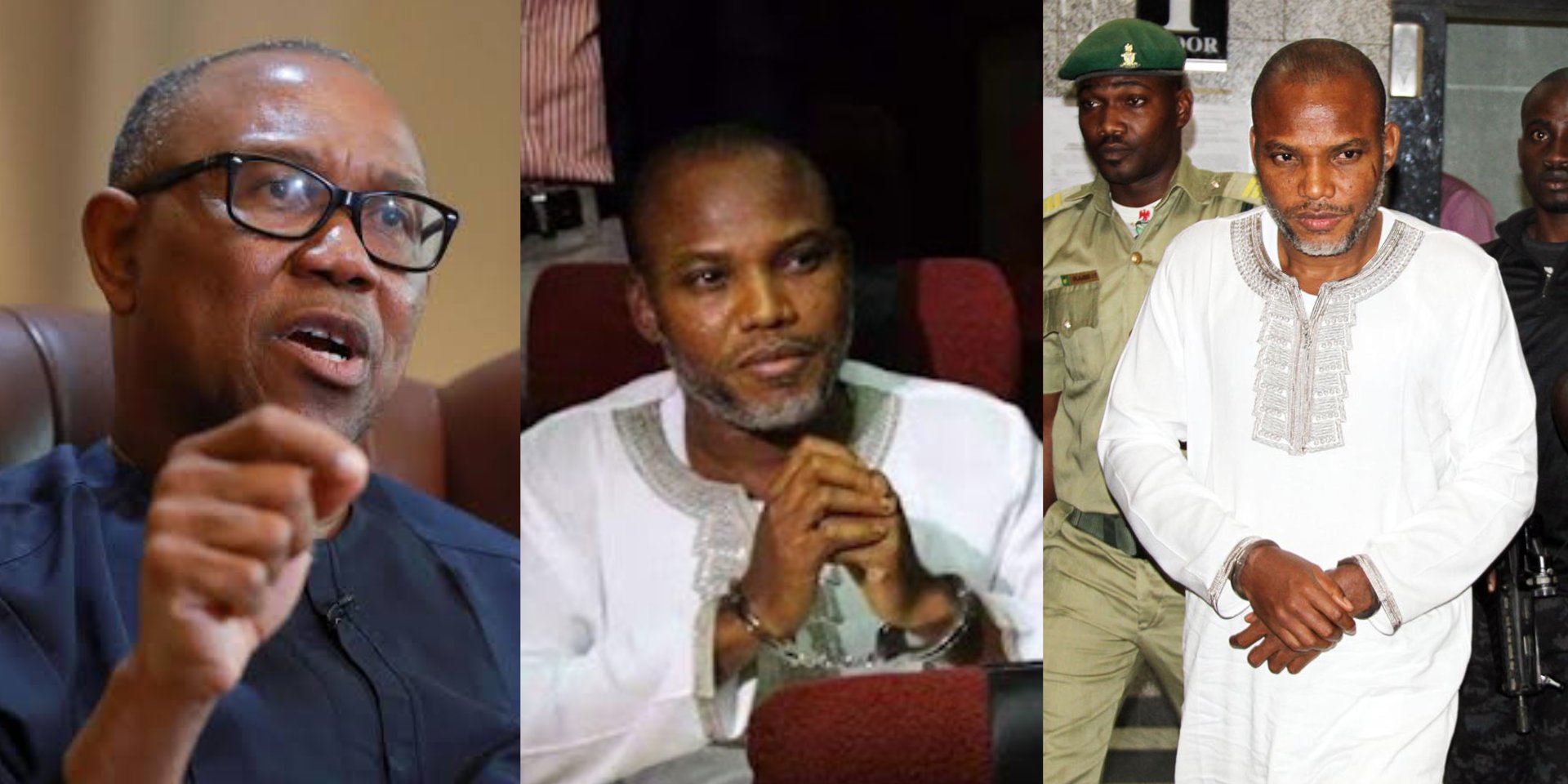Peter Obi Calls Nnamdi Kanu’s Conviction A Costly Leadership Failure That Deepens Tension

Peter Obi has reacted to the arrest, detention, and eventual conviction of Nnamdi Kanu, describing the entire episode as a costly leadership failure that has deepened national tension instead of easing it.
In a statement released through his media aide, Ibrahim Umar, Obi urged Nigerians to reflect on the situation, noting that the country is already weighed down by economic hardship, insecurity, and years of misgovernance. According to the statement, the moment calls for calm thinking, not further escalation.
Obi restated his long-standing view that Kanu’s arrest should never have happened, arguing that the current outcome is the result of a government that ignored wiser options. He stressed that the concerns Kanu raised were issues many Nigerians also worry about—issues that required open conversation, fairness, and inclusion.
He argued that stable nations resolve grievances by reforming policies, broadening representation, and engaging constructively with affected groups. In this case, he said Nigeria chose force before exhausting dialogue. The statement added, “Coercion becomes necessary only when reason has been exhausted. In this case, reason was not fully explored, if at all”.
While acknowledging that some believe the justice system simply followed its procedures, Obi maintained that real leadership sometimes requires going beyond strict legal pathways to prevent deeper national cracks. He pointed to examples around the world where countries rely on political solutions, negotiated peace, or conditional amnesty when legal outcomes threaten national cohesion.
He described the government’s approach as similar to a person stuck in a pit who keeps digging instead of looking for a way out, warning that such choices only fuel suspicion and worsen an already fragile atmosphere.
Obi appealed for restraint and called on the Presidency, the Council of State, and respected national figures to step in and steer the country toward reconciliation. He urged efforts that promote healing rather than hostility, unity instead of bitterness, and dialogue over confrontation.
He expressed confidence that Nigeria can still find peace if it commits to justice, fairness, and compassion.



